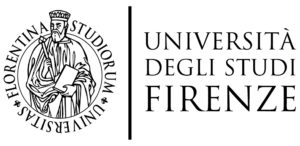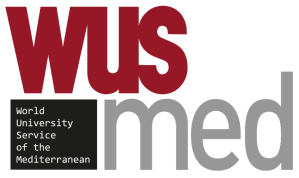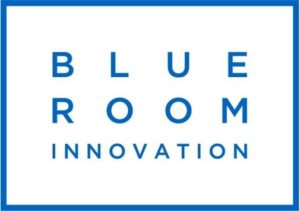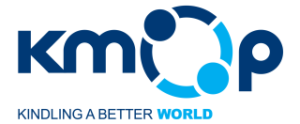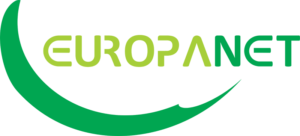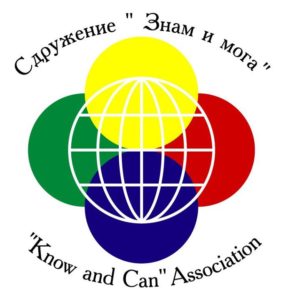Partnership
The Federazione Italiana delle Scuole Materne della Regione Toscana is the associative, promotional and
representative entity of the provincial federations of private kindergartens.
FISM Regione Toscana supports and promotes new schools and services for children in which they are
educated according to the enhancement of themselves, of their potential and dignity.
For this purpose, the Federation suggests to its members to:
- Promote and support the establishment of new schools or other services for children;
- Offer pedagogical-educational and management-administrative consultancy and coordination
services; - Promote, in agreement with the local institutions, opportunities for in-depth study on the topics of
inclusion and reception at schools and in the system of local authorities; - Represent the same schools in their relations with civil and religious authorities;
- Take care of the qualification and permanent training of those who work in the associated schools
through their own study, updating and coordination initiatives; - Stimulate, with appropriate action at different levels, legislative procedures and economic
interventions for the associated schools; - Inform public opinion and raise awareness about the services provided by the member schools;
- Inform and make schools aware of the services provided by local and welfare authorities, and by
the community in general.
FISM considers essential to ensure the continuity of a service based on an educational project that supports
the pedagogical proposal, the teaching practice and its own Christian values. “The establishment of a
network of consulting, animation and coordination services in the territory, entrusted to professionally
trained people, who share the founding values of the educational project, is a guarantee of continuity and
primary factor of the quality of service offered to children and families”.
With reference to F.R.I.E.N.D.E.S.K. Project, FISM is the Coordinator of the project and is the leader of IO3:
Friendesk Hub & Spoke Model Experimentation.
The University of Florence is one of the most important Italian public Universities with its 24 Departments
organized in 5 scientific areas: biomedical, sciences, technologies, social sciences, humanities and
education.
It is an important and influential centre for research and higher training in Italy, with 1,800
lecturers and internal research staff, 1,600 technical and administrative staff, and over 1,600 research
assistants and doctoral students. It offers a wide range of study programmes at various levels and in all
areas of knowledge.
126 degree courses (first and second cycle, corresponding to Bachelor’s and Master’s
Degrees) organised in 10 Schools, with a population of about 60,000 registered students, one-forth of
which come from outside of Tuscany. The foreign student’s population has risen significantly in the last few
years as a demonstration of the commitment to internationalisation of the University of Florence.
The intensive participation in research programmes of national and international relevance and the
significant scientific results achieved are influencing deeply the attraction and retention of international
students and researchers. The research projects are supported by external funding (EC and public funds, as
well as private sponsorships) besides state funding from the Ministry of University and Research (MIUR),
which accounts for one-tenth of the total.
This combination of factors qualifies the Florentine institution as
a modern research university and accounts for its excellent position in national and world rankings. It
cooperates with the other university institutions of the European Union in the creation of a community
forum for research and higher learning and with other universities at regional, national and international
level to increase the quality and effectiveness of its institutional activities.
The Departments of the University of Florence are the key organising structures that carry out all research,
teaching and training activities involving knowledge and innovation transfer.
With reference to F.R.I.E.N.D.E.S.K. Project, the Department of Education, Languages, Intercultural Studies,
Literature and Psychology (Forlilpsi) is involved. The Department FORLILPSI was established in January
2019 and it is the result of the union of the Department of Education and Psycology and the Department of
Languages, Intercultures and Literature. The purpose of the new Department is to research and promote educational-formative paths in the transversal area of languages, cultures, minds, behaviours, formation and education investigated in relation to texts and contexts and the spatial-temporal dimension, with a
keen eye on internationalisation.
The Department has a wide-ranging experience in European project works
and has been involved in many European projects in the field of education, both as partner and coordinator.
It is the is the leader of IO1: Comparative Studies on ECEC systems and Hub&Spoke Model Guidelines.
WUSMED is a politically independent association committed to academic freedom and the encouraging of
the potential of academic cooperation and international relations.
WUSMED's vision is to be the competent partner for the development of higher education as key factor for
socio-economic and political advancement of societies.
WUSMED stands out as basic and fundamental objectives that are given below:
- Promote, coordinate, develop and evaluate activities in international cooperation for sustainable
human development in the Mediterranean countries; - Develop education, training, communication and research that are directed to respond to the
needs of the social, economic and cultural development focusing specially on issues of common
interest with the in the Mediterranean countries; - Collaborate in the creation and management of centres for teaching, research, development and
innovation to help achieve the goals of WUSMED; - Enhance knowledge transfer from the University through advice, encouragement and possible
participation in companies for the use, dissemination and commercialization of knowledge; - Participate and activate various research projects in the areas of the own work of WUSMED and
that are of interest to institutions, universities, NGOs for Development and companies from both
continents; - Organize activities and disseminate information such as scholarships, prizes, contests, seminars,
courses, seminars, conferences, academic meetings and other events.
WUSMED has four employees and numerous freelancers in its members’ network with specific knowledge especially related to the relation between the market and the educational institutions.
With reference to F.R.I.E.N.D.E.S.K. Project, WUSMED has a strong experience in research, design,
implementation and evaluation of training courses and curriculum based on competences. It is the lader of
IO2: Training package for ECEC professionals.
Blue Room Innovation S.L. (BRI) is a Spanish SME set up in 2015. Blue Room Innovation is a unique innovation ecosystem which brings together established companies to help other ones to do more business, update technology, or get funding.
It is partnering with R&D centers like Centre Easy, FSU Jena,
Fraunhofer, LaSalle Innova.
It goes on- and offline to do so and cover three main areas to achieve it:
- Experience: the team of over has collected +15 years of experience solving technology challenges;
- Digital Transformation: the team understand the complexity of the challenge for all kinds of
business when innovating; - Open Innovation: the team promote actively the open innovation boosted by digital means.
Blue Room’s key area of knowledge are:
Business intelligence tool:
- Open innovation platforms
- Teaching and learning platforms and MOOCs
- Blockchain and smart contracts
- Applied intelligence
Consultancy:
- Digital transformation of businesses
- Innovation management
- Technology transfer
- Digital communication
- Business plan development
Project Advisory:
- Consortium building and proposal creation
- Workshop & event management
- Project management and evaluation
- Quality assurance
- Dissemination and project marketing
- Technical and financial reporting
Thanks to its competences and experiences, Blue Room is able to support with its technology and
innovation, Erasmus+ projects that strengthen and consolidate social cohesion, intercultural education,
local language in a multilingual framework of newly arrived migrants at primary and secondary schools.
With reference to F.R.I.E.N.D.E.S.K. Project, Blue Room is leader of IO4: Integrated Interactive Platform with
MOOC training courses. It helps to understand why and how the open innovation can work for the Project,
to support the complexity of the challenge for all kinds of business when innovating and the need of
virtualized services.
Social Action and Innovation Centre, situated in Athens, is a non profit organization with long-lasting experience in supporting vulnerable groups. Alongside with direct provision of Social services (mental health, trafficking, bullying, employment/poverty) its expertise pertains to design and implementation of impactful and innovative social initiatives in the
areas of Education, Human Rights, Employment, Care & Wellbeing and to Scientific research and development of know-how in social policy issues, aiming at building resilient communities with equal opportunities for all. KMOP’s vision is a world that rests on integrity, sustainable growth and individual well-being.
With reference to F.R.I.E.N.D.E.S.K. Project, KMOP is involved in all its outputs, thanks to its
extensive experience and expertise in the promotion of inclusion and empowerment of vulnerable groups, especially migrant and refugee children in Primary School Education.
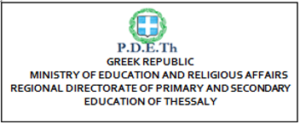
Regional Directorate for Primary & Secondary Education of Thessaly – Greece
The Regional Directorate for Primary and Secondary Education of Thessaly (P.D.E.Th) is a decentralized
regional administrative structure of the Greek Ministry of Education and Religious Affairs.
PDE of Thessaly
has got under its supervision all the General, Vocational and Special Schools, for Preschool, Primary and
Secondary Education, of four big municipalities of central Greece (Larisa, Volos, Trikala, Karditsa).
The Regional Directorate’s main scope is referred to the next points:
- Implementation of educational policy;
- Manage, control, coordinate the educational and administrative operation of primary and secondary schools and other educational structures in the region;
- Be responsible for the allocation of human resources;
- Direct, co-ordinate and monitor school consultants;
- Be responsible for in-service training and teacher development
- Conduct educational research;
- Collaborate with major stakeholders for innovation in the field of education;
- Organize educational meetings, day events and conferences
PDETh is expert in European projects and recently was reinforced with high qualifications administrative
staff.
As the Regional Directorate is responsible for the educational policy, its administrative and
educational staff collaborates with local universities, scientific organizations, local consultants in different
educational areas, parent’s associations, on relevant issues.
PDETh’s staff has coordinated various projects such as Comenius, Leonardo, Erasmus+ and eTwinning along
with other European and international projects. They promote and coordinate Environmental Education
and Culture projects in the Region of Thessaly with schools’ partnership and they participate in national and
international networks for teachers and students.
With reference to F.R.I.E.N.D.E.S.K. Project, P.D.E.Th is leader of IO5: Hub&Spoke Model Governance to
influence the authorities in order to improve the local contexts within the social inclusion of children.
Europanet Association was established as an Educational and training Association in 2010 and from then it
has developed European projects in Youth, Grundtvig, LLP, ERASMUS+ Programme.
Europanet has an experience of 7 years of working as a coordinator or as a partner in more than 30
national and European projects. The projects implemented are local or regional (East-East/ Soros Open
Network) or transnational (over 40 European partners and 26 partners from neighbour countries).
Its staff
and trainers have an international experience, practicing their skills in national and international level.
Europanet has a board of members, a managerial department with experience in implementing of
European projects, has 84 volunteers (young, adults and seniors) and collaborates with more than 30
experts from different domains: education, social art, entrepreneurship.
The volunteers and members of
the Association are developing activities in the field of education (non-formal, formal and adult education),
community development and civil society, starting from the local projects and continuing to shaping
policies development at the system level.
The volunteers of Europanet benefit of a big support in implementing projects, plan activities, communication and lobby and advocacy actions.
It is having EVS accreditation (sending, hosting, coordinating) starting from 2010, is working at local,
national and international level with schools, NGO-s, Businesses or Public Administration bodies.
With reference to F.R.I.E.N.D.E.S.K. Project, Europanet Association is involved in all its outputs and, thanks
to its competences and experiences in European projects, it is leader of Communication and Dissemination
Activity.
Know and Can Association is a non-governmental organization, founded in 2007 in Sofia, Bulgaria.
It works
on national and European projects, career counseling, personal and professional development, soft skills
trainings, programs, courses and activities in the sphere of non-formal and informal education and
trainings.
The Association is a member of IVETA – International Vocational Education and Training Association; it is a
member of a European NGO group – L.E.M.O.N. – Learning Mobility Network which is a network of 13
European NGOs, from 12 different countries, working together to share and create high-quality educational
projects that enable young people to live and work across Europe; it is accredited as European Voluntary
Service Centre.
The members of the Know and Can team are specialists in the fields of youth, psychology, sociology,
pedagogy, philosophy, journalism, economics, finances and budgeting, law of the European Union. The
Association works also with independent consultants and experts.
Know and Can is working on several projects related to active support for young people with different
needs. It has experience in working on projects related with Open Educational Resources and assisting
different groups of society, such as migrants, romas, disadvantages group.
It has a big experience in organization of educational events, which include workshops, trainings, seminars
using the methods of non-formal education and transfer of basic and practical life skills. Its activities are
aimed at the improvement of knowledge and skills of educators and encourage them to lead more interactive and beneficial trainings. Its team has the capacity to reach a wide audience of educators,
because it has contacts with educational centres and NGOs.
With reference to F.R.I.E.N.D.E.S.K. Project, Know and Can Association is involved in all its outputs.


